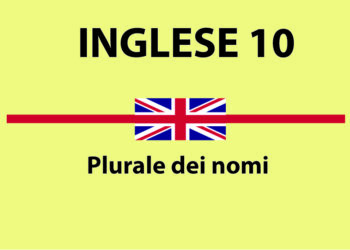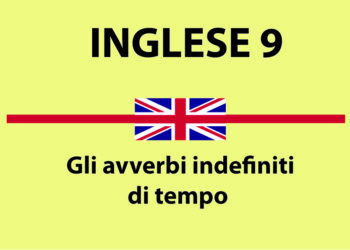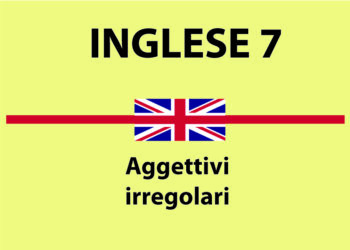🟦 Esercizi verbo avere in inglese
Se vuoi imparare a usare correttamente il verbo to have, questa raccolta di esercizi verbo avere in inglese è perfetta per te. Attraverso attività pratiche e progressive potrai esercitarti sulle forme affermative, negative e interrogative di have, has, have got e has got. Gli esercizi ti aiuteranno a consolidare le regole grammaticali e a migliorare la tua sicurezza nell’espressione di possesso, abitudini quotidiane e domande in lingua inglese. Sono ideali sia per studenti principianti, sia per chi desidera ripassare le basi in modo chiaro ed efficace.
- Guarda anche l’articolo: Il verbo “avere” in inglese: uso, regole ed esempi
Guarda anche il Santuario di San Costantino a Sedilo: storia, architettura e la leggendaria Ardia

📌 Forme base del verbo “to have”
Il verbo “to have” cambia forma a seconda del soggetto:
| Soggetto | Forma affermativa | Forma negativa | Forma interrogativa |
|---|---|---|---|
| I / You / We / They | have | do not have (don’t have) | Do I/you/we/they have…? |
| He / She / It | has | does not have (doesn’t have) | Does he/she/it have…? |
Guarda anche: il verbo avere in inglese secondo il sito BritishAmericanAcademy
Esercizi verbo avere in inglese
✅ Soluzioni Esercizio 1
has
have
have
has
have
have
has
have
has
have
✅ Soluzioni Esercizio 2
She doesn’t have a dog.
They don’t have a computer.
He hasn’t got a bike.
We don’t have time.
I haven’t got a new phone.
✅ Soluzioni Esercizio 3
I have two sisters.
She has a red car.
We have many friends.
Do you have a pen?
I don’t have time.
🟠 Ricorda che…
Il verbo avere in inglese è molto versatile: serve per parlare di possesso, per descrivere azioni quotidiane e per costruire frasi interrogative e negative. La distinzione tra have e have got è utile soprattutto per comprendere il linguaggio parlato e le differenze tra inglese britannico e americano.
👉 Per imparare a usarlo bene, esercitati con frasi reali, alternando forme affermative, negative e interrogative.
📝 Esercizio 4 – Inserisci la forma corretta di “have / has / have got / has got”
Completa le frasi con la forma corretta del verbo “avere”:
They ___ three children.
She ___ got long hair.
I ___ a cup of tea every morning.
We ___ got an idea for the project.
He ___ lunch at school.
You ___ a beautiful house.
My parents ___ got two cars.
The baby ___ a red hat.
I ___ got many books at home.
She ___ a shower in the evening.
✅ Soluzioni Esercizio 4
have
has
have
have
has
have
have
has
have
has
✅ Soluzioni Esercizio 5
Does she have a sister?
Do you have a ticket?
Has he got a bike?
Do we have time?
Have they got new shoes?
Does she have lunch at 1:00?
Do I have a question?
Has he got an old camera?
Do we have a shower after training?
Has she got a nice smile?
✅ Soluzioni Esercizio 6
haven’t
doesn’t have
haven’t
doesn’t have
don’t have
hasn’t
don’t have
haven’t
doesn’t have
haven’t
✅ Soluzioni Esercizio 7
I have a brother and a sister.
She doesn’t have a bicycle.
We have a beautiful garden.
I don’t have time today.
They have a new house.
We don’t have homework.
He has a black cat.
I don’t have a ticket for the concert.
She has two phones.
They don’t have a television.
✅ Soluzioni Esercizio 8
My name is Emma. I have a big family. I’ve got two brothers and one sister. My parents have a small restaurant in town. My father has lunch there every day. We also have a dog and a cat. My sister has got a bike but I don’t. I have breakfast early in the morning because I start school at 8:00. We have got many relatives, so our house is always full of people!
✅ Soluzioni Esercizio 9
She has a dog.
They have got two children.
I don’t have a car.
We haven’t got a television.
Does she have a cat?
He has got a sister.
Does she have lunch at noon?
We have breakfast together.
She hasn’t got a pen.
They don’t have any money.
🟢 Annotazione didattica
Con questi esercizi hai approfondito l’uso del verbo avere in inglese in tutte le sue forme: affermativa, negativa e interrogativa, sia con “have” che con “have got”.
👉 Esercitarsi regolarmente su questi schemi aiuta a parlare e scrivere con maggiore naturalezza, evitando gli errori più comuni.
📝 Esercizio 1 – Completa le frasi con la forma corretta di “have” o “has”
She ___ a big family.
I ___ a shower every morning.
They ___ a new car.
He ___ a cold today.
We ___ lunch at school.
You ___ got a beautiful smile.
My brother ___ got two cats.
I ___ got an idea!
She ___ dinner at 8 p.m.
We ___ got many friends.
📝 Esercizio 5 – Riscrivi le frasi alla forma interrogativa
Esempio:
They have a car. → Do they have a car?
She has a sister.
You have a ticket.
He has got a bike.
We have time.
They have got new shoes.
She has lunch at 1:00.
I have a question.
He has got an old camera.
We have a shower after training.
She has got a nice smile.
📝 Esercizio 6 – Completa con la forma negativa corretta
I ___ got any money.
She ___ a car.
We ___ got enough time.
He ___ lunch at school.
They ___ a garden.
She ___ got a dog.
I ___ breakfast in the afternoon.
You ___ got the right answer.
He ___ any brothers.
We ___ got a TV at home.
📝 Esercizio 7 – Traduci dall’italiano all’inglese (forma affermativa e negativa)
Ho un fratello e una sorella.
Lei non ha una bicicletta.
Noi abbiamo un bel giardino.
Non ho tempo oggi.
Hanno una nuova casa.
Non abbiamo compiti.
Lui ha un gatto nero.
Non ho un biglietto per il concerto.
Lei ha due telefoni.
Non hanno un televisore.
📝 Esercizio 8 – Cloze test (riempi gli spazi)
Completa il testo con la forma corretta di have / has / have got / has got:
My name is Emma. I ___ a big family. I ___ got two brothers and one sister. My parents ___ a small restaurant in town. My father ___ lunch there every day. We also ___ a dog and a cat. My sister ___ got a bike but I don’t. I ___ breakfast early in the morning because I start school at 8:00. We ___ got many relatives, so our house is always full of people!
📝 Esercizio 9 – Errori da correggere
Ogni frase contiene un errore nell’uso del verbo “have”. Riscrivila in modo corretto:
She have a dog.
They has got two children.
I doesn’t have a car.
We haven’t a television.
Has she have a cat?
He have got a sister.
Do she have lunch at noon?
We has breakfast together.
She haven’t got a pen.
They doesn’t have any money.
🟢 Conclusione didattica
Con questi esercizi hai approfondito l’uso del verbo avere in inglese in tutte le sue forme: affermativa, negativa e interrogativa, sia con “have” che con “have got”.
👉 Esercitarsi regolarmente su questi schemi aiuta a parlare e scrivere con maggiore naturalezza, evitando gli errori più comuni.








